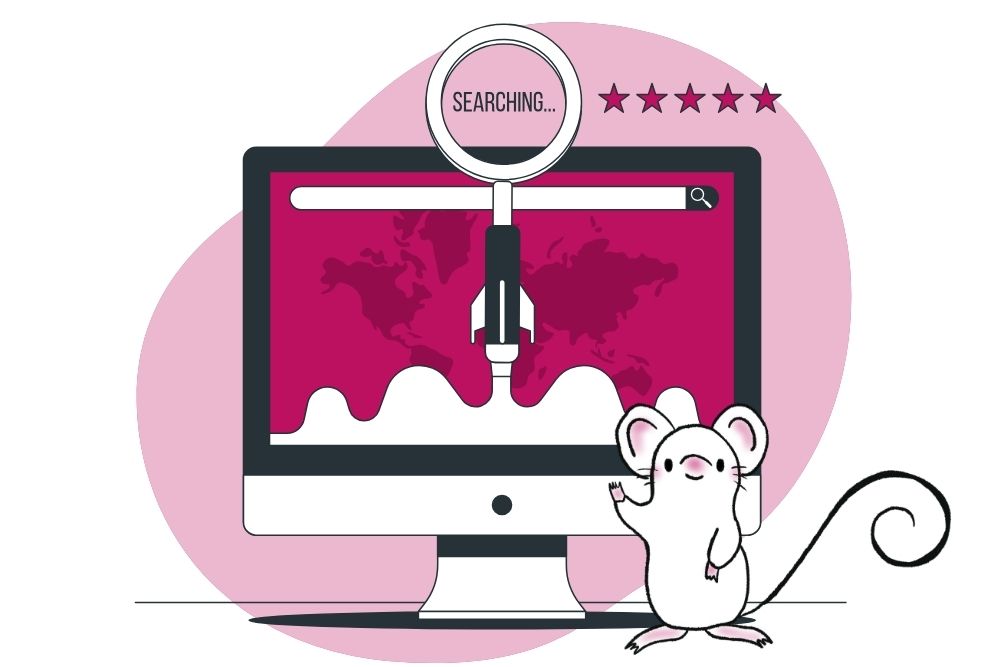The internet plays a pivotal role in shaping consumer behaviour, brands are constantly seeking effective ways to reach their target audience. Search Engine Marketing (SEM) is possibly the most effective tool in the marketer’s arsenal, allowing brands to promote their products and services to users actively searching for relevant information.
In this blog post, we will explore industries that excel in Paid Search Ads and discuss when it might be prudent for certain sectors to steer clear of this advertising method. As SEM specialists, we will also delve into the factors that make Search Engine Marketing effective.
Industries That Benefit the Most From Paid Search Advertising
Naturally, some industries will benefit more from search engine marketing. Here are some of the businesses that typically see good results from paid search.

E-commerce
The e-commerce industry thrives on online visibility, and Paid Search Ads provide an excellent avenue for promoting products directly to potential customers actively searching for your products, or similar and related items. Well-crafted ad campaigns can significantly boost sales and drive revenue.
Travel and Hospitality
Consumers often turn to search engines when planning trips or looking for accommodation. Travel and hospitality industries can capitalise on this behaviour by strategically placing ads to attract individuals in the consideration phase of their journey planning.
Healthcare and Local Services
Local businesses, including healthcare providers, benefit from geotargeting options in Search Engine Marketing. Localised ads help brands connect with nearby customers actively seeking services in their area.
Industries That Should Approach Paid Search Advertising With Caution
Paid search isn’t extremely effective for all industries. Here are some of the businesses that should carefully consider whether search engine marketing is the right digital marketing platform.
Low Search Volume Niche Products
If a product or service operates in a niche with extremely low search volume, the cost-effectiveness of Paid Search Ads may diminish. In such cases, alternative marketing strategies may be more appropriate. B2B brands could focus on LinkedIn, whilst, B2C brands could look at Facebook or even TikTok.
Highly Regulated Industries
Industries facing strict regulations and restrictions on advertising content may find it challenging to create compelling ad copy within the guidelines. In these cases, exploring other avenues like Email Marketing or Social Media Marketing (SEM) may be more suitable.
Effective Strategies For Running a Search Engine Marketing Campaign

Define Clear Objectives
Before launching a Paid Search Ad Campaign, it’s crucial to define clear and measurable objectives. Whether it’s brand awareness, website traffic, or website conversions, having specific goals will guide the entire campaign.
Target Audience Segmentation
Search Engine Marketing leverages user intent, displaying ads to individuals actively seeking information related to the advertised products or services. This targeted approach increases the likelihood of engaging with users genuinely interested in what a brand has to offer.
Guidelines on how to target audiences vary based on products and services being promoted, but to start, identify keyword groups, and create separate ad groups for each keyword group. We recommend having broad, phrase, and exact match keywords in different ad groups too. The exception being for brand keywords, where you create specific ad groups for each brand keyword you want to target.
Measurable Results
One of the key advantages of Search Engine Marketing is its measurability through tools like Google Analytics 4 (GA4). Advertisers can track and analyse various metrics, such as click-through rates, conversion rates, and return on ad spend. This data-driven approach allows brands to refine their strategies continuously and optimise campaigns for better results.
Quick and Flexible
Unlike traditional advertising methods, Search Engine Marketing offers quick implementation and flexibility. Advertisers can launch campaigns almost instantly and make real-time adjustments based on performance metrics. This agility is especially beneficial in dynamic market conditions.
Guidelines for Choosing Search Engine Platforms
To help you choose the best platform for your business, here are some guidelines for the different options available.

Google Ads
As the most widely used search engine globally, Google Ads is a go-to platform for many advertisers. Its vast user base and sophisticated targeting options make it suitable for a wide range of industries.
YouTube
Not always thought of as a Search Engine, many consumers use YouTube, owned by Google, to research products and services before purchasing them. As such, it is the second largest Search Engine, and provides brands the opportunity to advertise to users based on the view history.
Bing Ads
Microsoft Bing, although with a much smaller user base compared to Google, caters to an audience that may not be reached as effectively through other platforms. Advertisers should consider Bing Ads, especially when targeting an older demographic or specific geographic areas.
Yahoo
Yahoo Advertising can be a great fit for some online advertisers, particularly when it comes to affordability and specific types of users. Overall, users tend to be more affluent and older, which can make them ideal targets for certain brands.
Social Media Platforms
Social Media Platforms like Facebook and Instagram are also used by consumers to do research before purchasing, and therefore, also offer advertising opportunities. Advertisers should assess their target audience’s behaviour and preferences to determine whether incorporating social media into their strategy aligns with their goals.
Conclusion
Search Engine Marketing is a powerful tool for brands seeking targeted reach, measurable results, and flexibility in their marketing efforts. While certain industries excel in harnessing the benefits of Paid Search Ads, others may need to carefully evaluate the cost-effectiveness and regulatory challenges. Advertisers should choose Search Engine Platforms based on their target audience’s behaviour and preferences, ensuring their campaigns resonate effectively and maximise Return-on-Investment (ROI).
Reach out to Digital Squeak to discuss your marketing objectives and see if Paid Search Advertising is right for your brand – pippa@digitalsqueak.co.za

Pippa is Digital Squeak’s Founder. In her hunt to balance her passion for digital marketing and her responsibilities as a single mom, she decided that the best solution was to start an agency that not only delivered exceptional service to clients, but provided the team with the freedom they needed to live their lives to the fullest.




